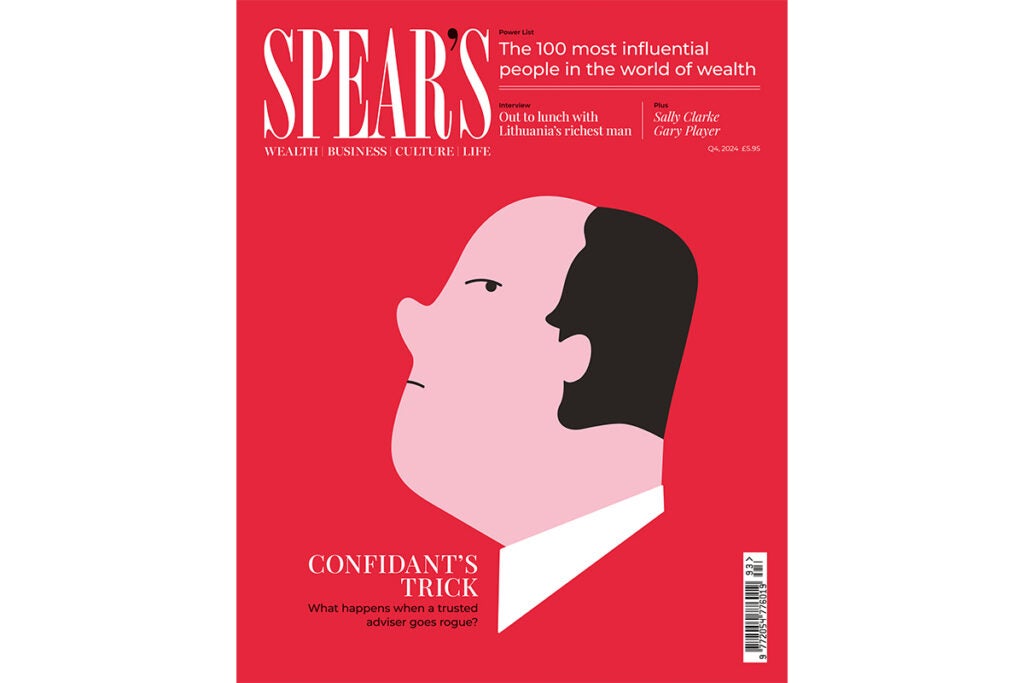
Is the dream of the internet, as many conceived of it, dead? The dream, that is, of a digital Great Library of Alexandria – where all human knowledge would be available to all? An important part of that dream was that the knowledge wouldn’t just be there, but that it would be navigable. A library without a catalogue, after all, is nothing but a ginormous Big Yellow Storage Unit full of books. That’s where Google came in; or, used to. Its brilliant algorithms promised to ‘organise the world’s information and make it universally accessible’.
[See also: Introducing Spear’s Magazine: Issue 93]
But some alarming reports from SEO types on the internet seem to be arguing that the great search engine may be on the point of quietly abandoning that core mission, or even may already have done so. For a decade or two, Google indexed (with a few necessary exceptions) everything on the open web. It is an open question how long that can plausibly continue. In fact – though of course its doings are somewhat opaque – some are claiming that it already defaults to not indexing new content rather than otherwise.
Why? Because of the arrival of generative AI. You can’t totally blame them. If machines can now churn out infinite amounts of content, whose whole purpose in many cases will be to game SEO and drive traffic, the old metrics Google used to rank things (such as how many other pages linked to something) will no longer be fit for purpose. Some grifting AI can create billions of pages linking to its scam site to push it up the list. The energy costs of indexing the human web are one thing; the energy costs of indexing the AI web (to say nothing of doing so in a way that makes it useful)… brr.
[See also: The Spear’s Power List 2024: Who made the cut?]
This seems to me kind of a big deal. A poignant brief window in human history saw an internet made by humans, in which everything on it could – thanks to human ingenuity – be mapped and indexed and navigated; imperfectly but completely. And that window will have closed for good: not an end-state digital utopia, but a brief glorious blip before it all lapsed into chaos. Thank you, AI.
I’m aware that many readers of this magazine will already be heavily invested in AI boondoggles of one sort or another, and I understand why. It’s a digital gold rush. But it’s also worrying. Not (or not only) because of the fear that it’ll get sassy and turn us all into paperclips; but more because, as above, it will flood the information ecosystem with gunge.
A version of the same anxiety attends the culture industry. Trained on the world’s store of human-generated text and images, AI creates some pretty remarkable stuff. But what happens when, year on year, the percentage of original material in its training datasets tends to zero?
[See also: Confidant’s trick: What happens when a trusted UHNW adviser goes rogue?]
What happens when the material on which our AI trains, in other words, is itself almost entirely already AI-generated? It’s hardly going to take long, given that AI can write a book as long as A La Recherche du Temps Perdu in less time than it took Proust to brush his teeth; that in the time it took to paint the ceiling of the Sistine Chapel, Midjourney will be able to create many times more ‘artworks’ than human beings have created in the whole history of the world.
The zone is flooding. Kipple, as Philip K Dick warned us, drives out non-kipple. And what happens when the machine that makes the good stuff into kipple has only kipple as an input? Kipple squared, kipple cubed, kipple to the power of kipple…
The image I have is of AI swimming through the internet like a gleaming goldfish in a tank. It glints prettily in the clear water, nibbling at the delectable weeds and flakes of fish food, and such. But as time goes on, this greedy fish eats more and more of the good stuff, and as it does so, it does what fish do: it poops in the water.
[See also: What ancient Greece can tell us about the world of taxation]
The water goes cloudy and dull. A rusty frosting of fish poop starts to settle on the leaves of the water-weeds. And still the fish goes on eating, and still it goes on pooping. It barely notices that more and more of what it’s eating is fish poop. The tank gets cloudier and cloudier. When its daily pinch of fish flakes descends through the water, it’s impossible for the fish even to see them as they descend from this fish-poop pea-souper.
Soon, our once lovely aquarium is an opaque space in which a blind fish circles, ceaselessly recycling fish poop into more fish poop. Somebody is going to have to figure out how to clean the aquarium.
This column was first published Spear’s Magazine Issue 93. Click here to subscribe.







